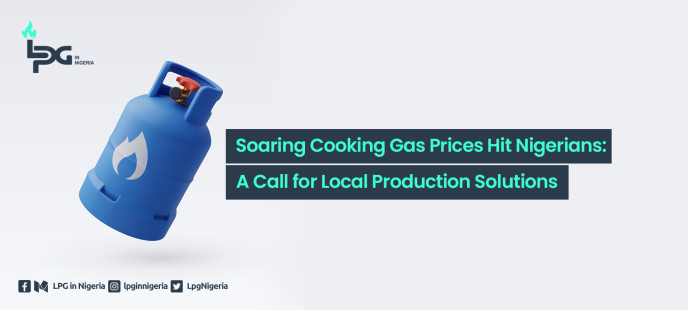- 3332
- 0
Sharing Ideas and Updates on LPG in Nigeria and related information to enable effective collaboration within the LPG Value Chain
Soaring Cooking Gas Prices Hit Nigerians: A Call For Local Production Solutions

The price of Liquefied Petroleum Gas (LPG), commonly known as cooking gas, has surged to unprecedented levels, with some retail outlets in Ogun and Lagos states now selling at N1,500 per kilogram. This steep increase has left many Nigerians struggling to afford this essential commodity, pushing household budgets to the limit. In Abuja, the average cost to refill a 12.5kg cylinder has risen by 41.6%, with prices reaching as high as N17,000 in various areas.
The Reason Behind the Price Hike
Suresh Kumar, Managing Director and CEO of NIPCO PLC, shed light on the root cause of this price surge. According to him, more than 60% of the 1.5 million metric tonnes of cooking gas consumed annually in Nigeria is imported. The heavy reliance on imports means that local prices are vulnerable to international market fluctuations, currency devaluation, and supply chain challenges.
Kumar urged the Federal Government to take steps to reduce this dependence by encouraging companies like Chevron to convert more of their propane output into butane, which is better suited for domestic cooking needs. This shift would not only help stabilize prices but also enhance Nigeria’s energy security.
The Impact on Nigerian Households
The sharp rise in cooking gas prices has hit Nigerian households hard, especially for families that rely on LPG for daily cooking. Many are now forced to consider alternatives such as kerosene, firewood, or charcoal, which are not only less efficient but also harmful to health and the environment.
The Way Forward
With cooking gas prices soaring and showing no signs of slowing down, the call for increased local production is more urgent than ever. Encouraging companies to convert propane to butane for domestic use, along with investments in local LPG production and infrastructure, could provide a long-term solution to stabilize prices and reduce Nigeria’s dependence on imports.
For now, many Nigerians are left hoping for swift government intervention to make this essential resource more affordable.
















0 Comment.